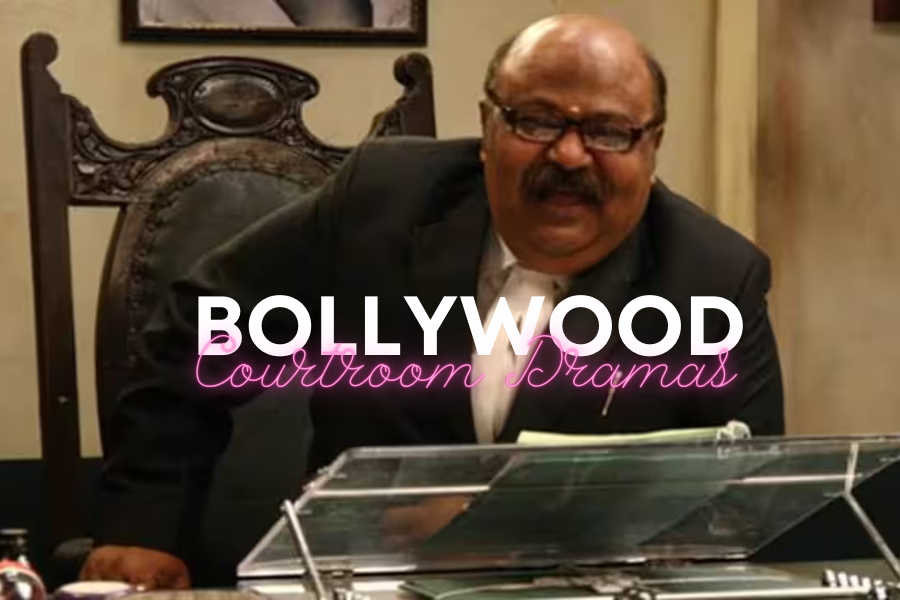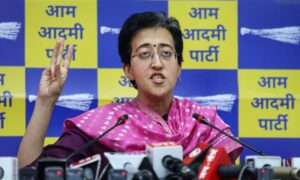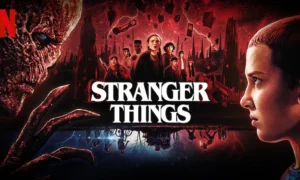Bollywood potboilers have movie junkies, such as us, asking for more. From edge of seat dramas to romantic comedies, family dramas and more, Bollywood has been entertaining us for over 100 years.
In this rich history of producing diverse genres of films, Courtroom dramas hold a special place for their intense narratives and powerful depictions of our legal system.
Often these films go beyond entertaining us and offer an insightful commentary on our social fabric, ethics and morality.
It also enthrals the audience with powerful dialogs and screenplay along with par excellence performances that go on to make these flicks memorable.
These movies mirror complexities of the legal framework and through their gripping storytelling shine light on various aspects of human suffering and the desperate need for justice.
Here are some of the most notable courtroom dramas that Bollywood has offered, each a unique portrayal of justice and the law.
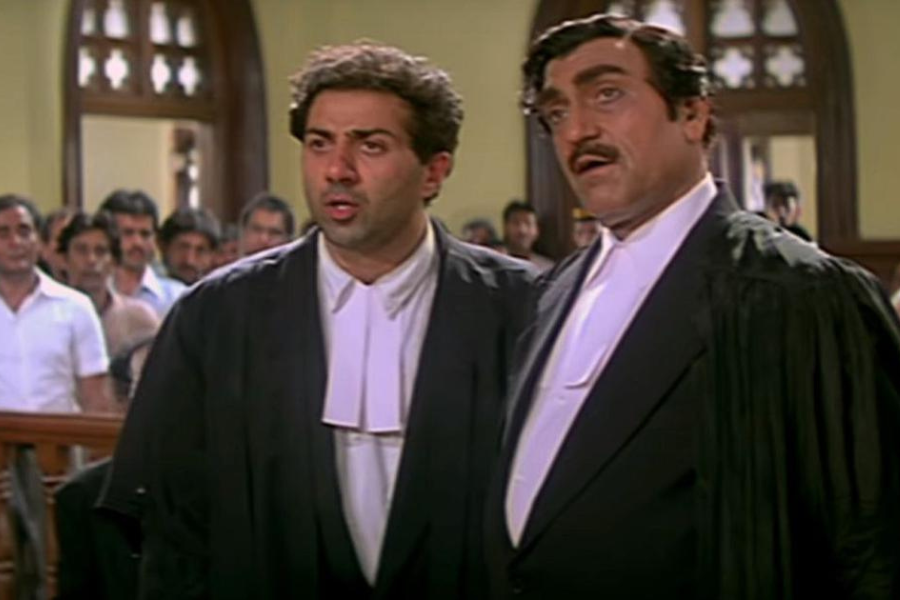
“Damini” (1993): This is a 1993 Crime-Courtroom Drama directed and co-written by Rajkumar Santoshi. It stars Meenakshi Seshadri in title role with Sunny Deol, Rishi Kapoor and Amrish Puri. Aamir Khan also makes a special appearance in the film.
Damini was a social drama revolving around justice for a poor rape victim. A powerful narrative about social injustice and a woman’s fight against it. Damini, portrayed by Meenakshi Seshadri, witnesses her household’s maid being sexually assaulted by her brother-in-law and his friends. The movie focuses on her struggle to get justice in the face of societal and familial pressure.
Meenakshi Seshadri in the titular role, delivered her career best performance. But the real scene stealer turned out to be Sunny Deol, who appears only in the movie’s second half.
With brilliant punchlines like “Yeh dhaai kilo ka haath jab kisipe padta hai, toh aadmi uthta nahin, uth jaata hai” and “Aisa jhatka lagega ki tu jhatakna bhul jaayega”, Sunny Deol played to the gallery as the alcoholic lawyer.
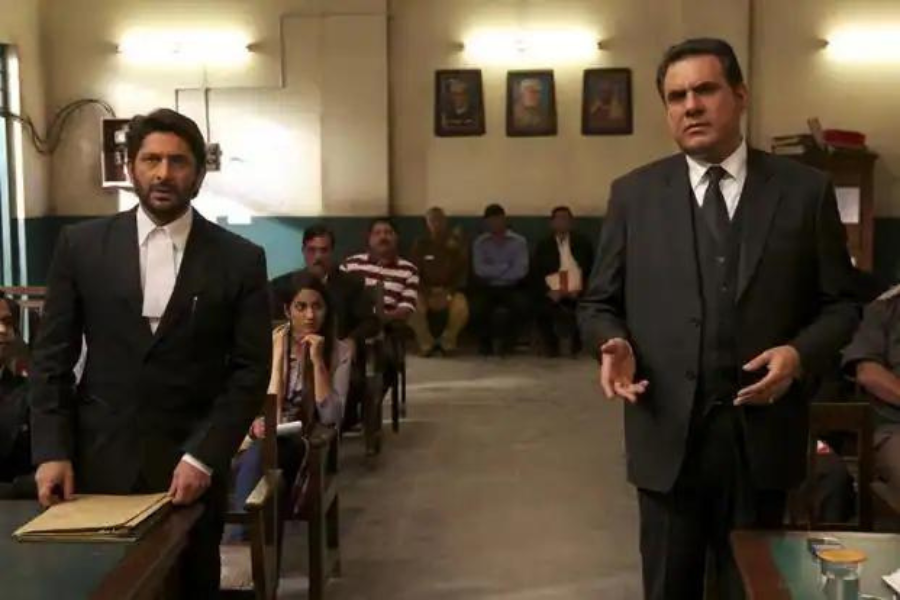
“Jolly LLB” (2013): Jolly LLB is a 2013 dark comedy courtroom drama written and directed by Subhash Kaprro, staring Arshad Warsi, Boman Irani, Amrita Rao and Saurabh Shukla.
Arshad Warsi as Jagdish Tyagi (Jolly), is a small-time lawyer, who inadvertently stumbles upon a major legal case involving a hit-and-run.
The film focuses on his attempt to earn six innocent labourers their justice and his journey against the monopolistic behaviour of the rich and judicial corruption.
The storyline is inspired by the 1999 hit-and-run case of Sanjeev Nanda with minor reference to Priyadarshani Mattoo case.
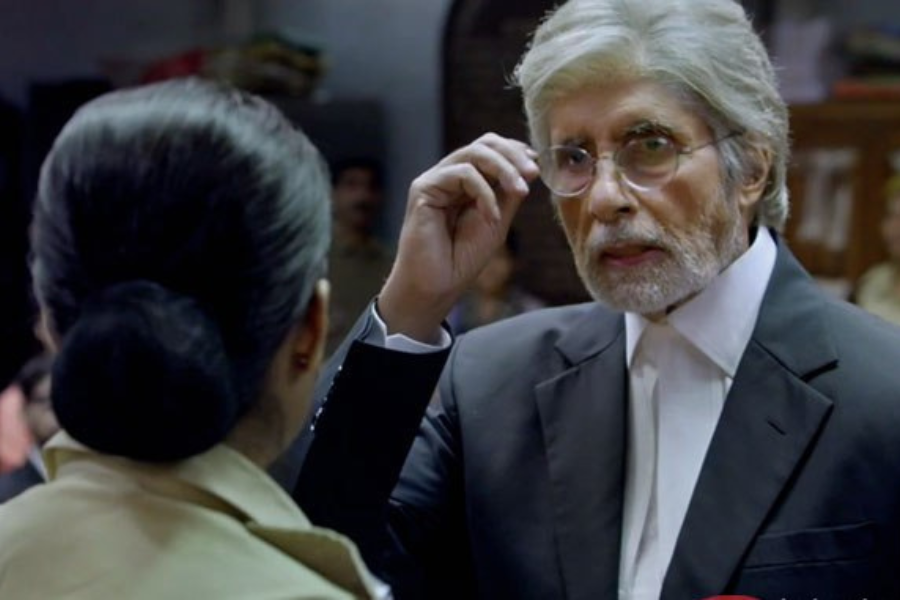
“Pink” (2016):
Directed by Aniruddha Roy Chowdhury, the film features an ensemble cast including Amitabh Bachchan, Taapsee Pannu, Kriti Kulhari and Angad Bedi.
It is a compelling courtroom drama centered around the issue of consent. When three young women, played by Taapsee Pannu, Kirti Kulhari, and Andrea Tariang, are implicated in a crime, they find themselves up against powerful males.
Aniruddha Roy Chowdhury chooses a sensitive subject, weaves a gripping courtroom drama around it and employs the powerhouse of talent Amitabh Bachchan to drive home the point in his trade mark baritone voice. Amitabh Bachchan, at the age of 73, delivers a performance extraordinary, as a retired bipolar lawyer who takes up their case. The courtroom scenes are intense and raise significant questions about societal perceptions of women, victim blaming and the meaning of consent.

“Court” (2014): Directed by Chaitanya Tamhane, “Court” is a stark, minimalist film that examines the Indian legal system through the Mumbai Sessions Court trial of an aging singer, Narayan Kamble (Vira Sathidar), who is accused of encouraging a manhole worker to commit suicide through one of his folk songs.
The film dissects the mundane and often frustratingly slow judicial process in India, reflecting on how it impacts the lives of those involved.
Realism is enhanced with critical commentary in this film that stands out for its authenticity and thought provoking narrative.
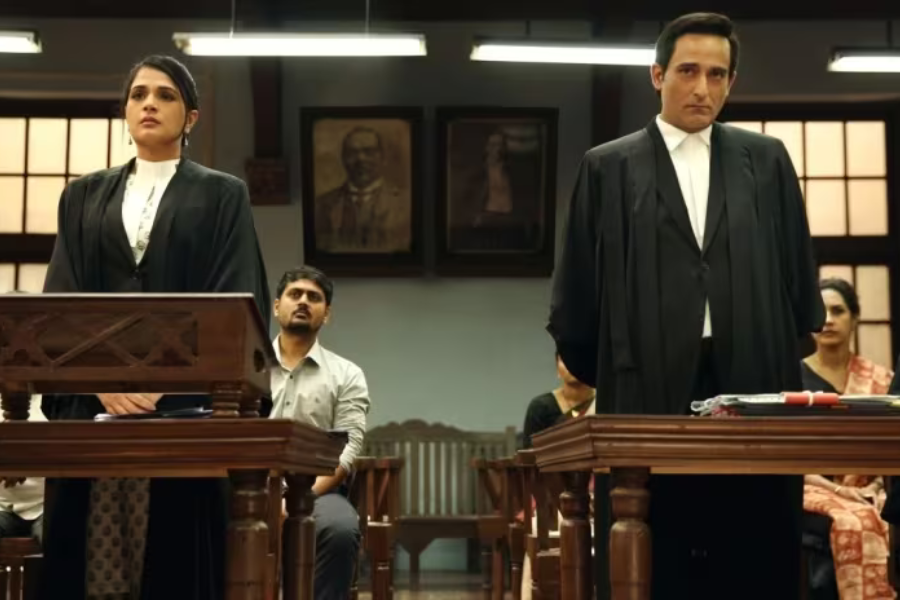
“Section 375” (2019): The full name for the film was “Section 375: Marzi Ya Zabardasti?” (Section 375: Will or Force?), became better known simply as “Section 375”. It is a 2019 flick directed by Ajay Bahl and is a riveting legal drama that delves into the nuances of a rape case filed under Section 375 of the Indian Penal Court.
The story revolves around a Bollywood director accused of rape by a junior costume assistant.
Powerful performances by Akshaye Khanna and Rich Chadha as opposing lawyers, meander through the labyrinth of legal complexity and the Indian justice system.
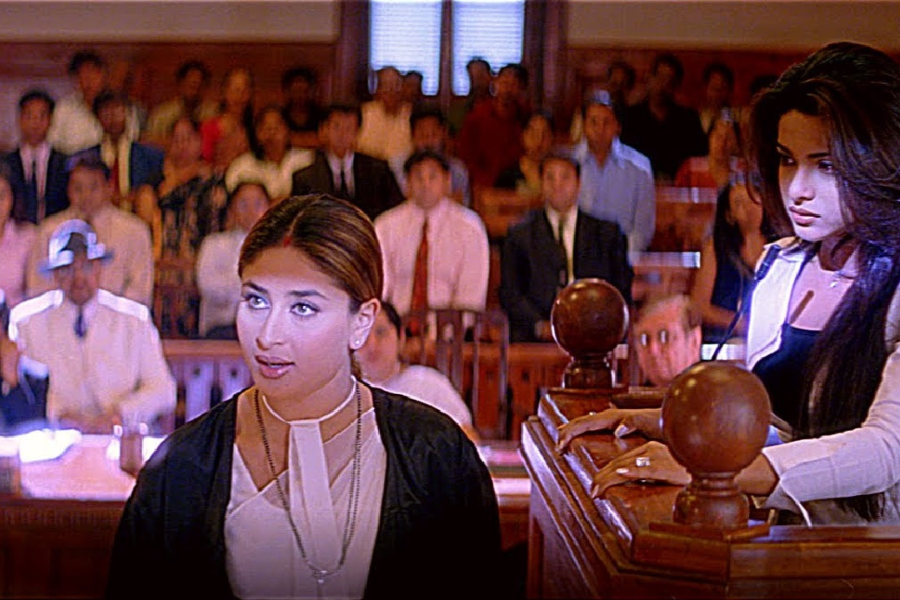
“Aitraaz” (2004):
Is a 2004 romatic thriller film directed by Abbas Mustan. It is a gripping tale of ambition, power and sexual harassment. It stars Akshay Kumar, Priyanka Chopra and Kareena Kapoor.
Aitraaz tells the story of a man accused of sexual harassment by his female superior.
Loosely based on the 1994 film Disclosure, it explores the theme of gender power dynamics and misuse of sexual harassment laws.

“Rustom” (2016): This 2016 film, directed by Tinu Suresh Desai, stars Akshay Kumar in the lead. Inspired by the real life K.M Nanvati case, Akshay plays the role of a decorated naval officer who kills his wife’s lover, leading to a sensational trial that caught the imagination and interest of the Indian public back then too.
The film combines elements of patriotism, honour and morality. With dramatic twists and turns, while exploring the themes of love, betrayal and justice, the film is an out- and-out pot boiler.
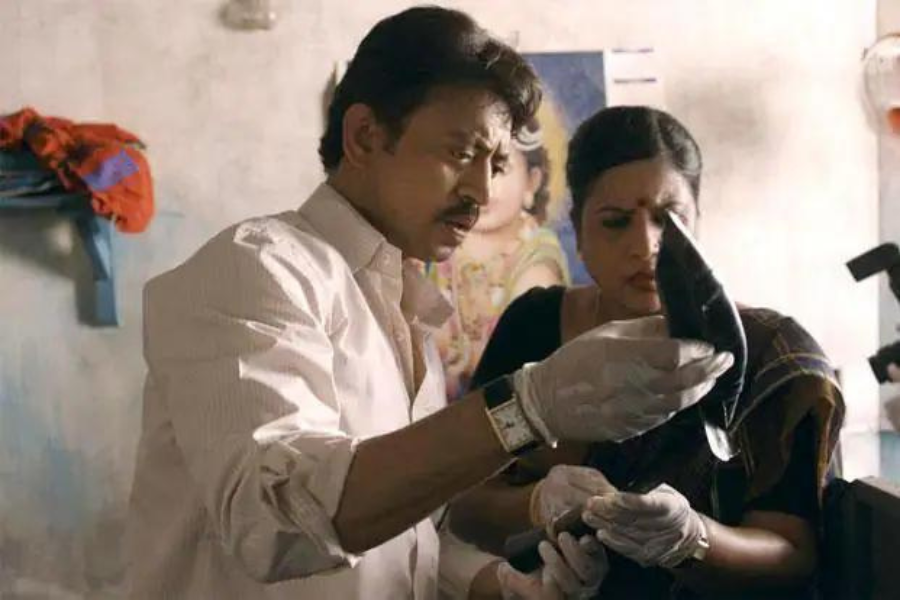
“Talvar” (2015): Was a crime thriller and court room drama based on the sensational Noida Double Murder case that has flummoxed an entire Indian generation. This who-done-it film was Directed by celebrated Director Meghna Gulzar and written by hugely talented Vishal Bhardwaj.
The film presents different perspectives of the investigation inside the courtroom and compels viewers to choose a side.
The film, led by Irrfan Khan, delves into the complexities of the legal system and the challenges in finding the truth. “Talvar” is notable for its unbiased narrative and the intense courtroom scenes that lay bare the flaws and prejudices in the criminal justice system.
The film also starred Konkona Sen Sharma and Neeraj Kabi.
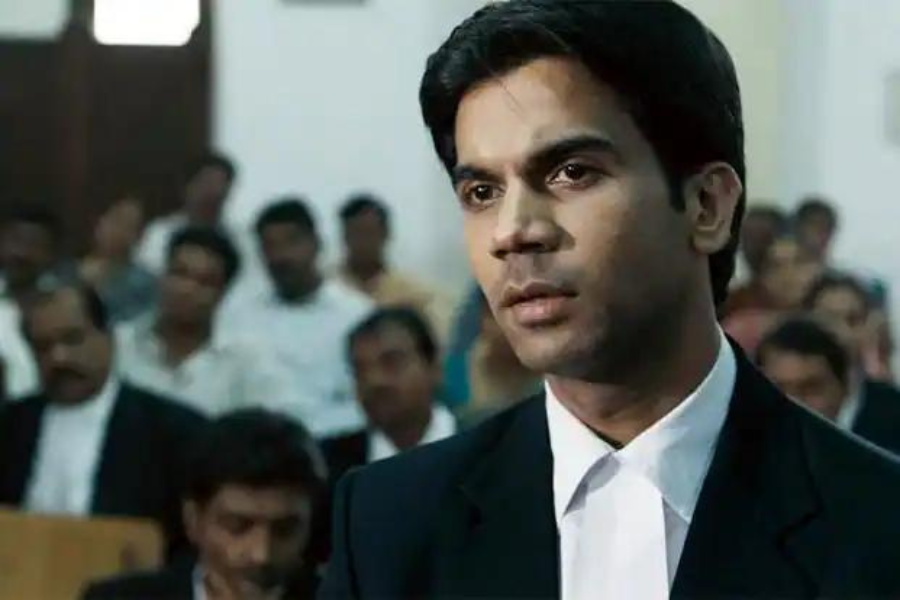
“Shahid” (2012): Based on the life of lawyer and human rights activist Shahid Azmi, this film is directed by Hansal Mehta. It portrays the life and struggles of Shahid who makes a living by defending people accused of terrorism and more.
The film highlights the challenges faced by lawyers in controversial cases and the impact of terrorism on individual lives.
The film stars Rajkummar Rao.
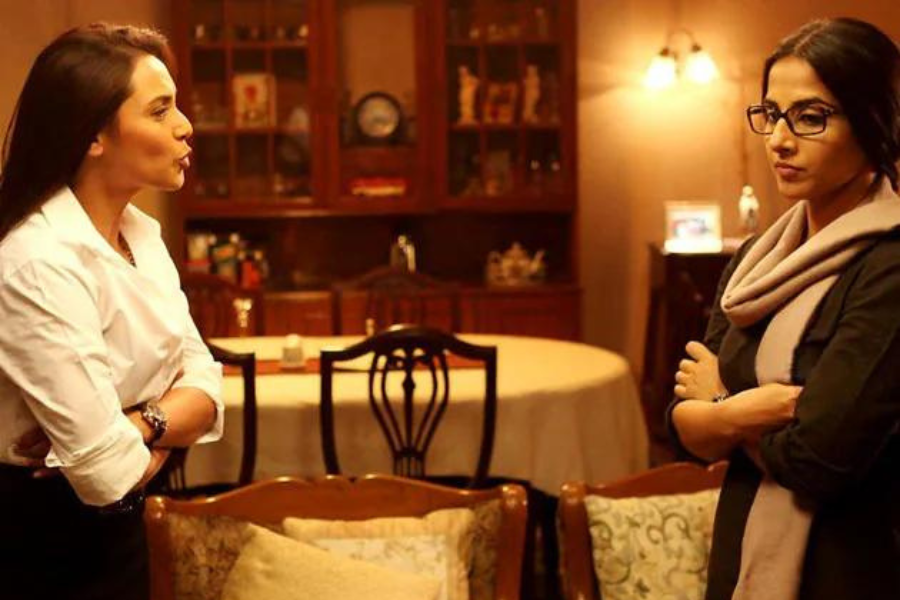
“No One Killed Jessica” (2011): Directed by Raj Kumar Gupta, this film is based on the true story of the Jessica Lal murder case.
The film stars Rani Mukerji and Vidya Balan and focuses on the pursuit of justice by Jessica’s sister Sabrina Lal and a determined journalist.
The film also showcases public outrage and media pressure and how it played a crucial role in not only reopening the case but also getting justice for Jessica.
These are just some of the many courtroom dramas that Bollywood has successfully produced over the decades.
Films like Dilip Kumar’s Shaheed (1948), Raj Kapoor’s Awara (1951), Mehboob Khan’s Amar (1954), BR Chopra’s Kanoon (1960), Dev Anand’s Baat Ek Raat Ki (1962), Dharmendra’s Pooja Ke Phool (1964), Chopra brothers’ Wakt (1965), Sunil Dutt’s Mera Saya (1966), and Ashok Kumar’s Mamta (1966), BR Chopra’s Dhund (1973) were among the early trendsetters.
In conclusion, Bollywood’s courtroom dramas stand as a testament to the industry’s ability to craft powerful narratives that resonate deeply with audiences. These films do more than just tell a story; they provoke thought, challenge societal norms, and stir the conscience.

